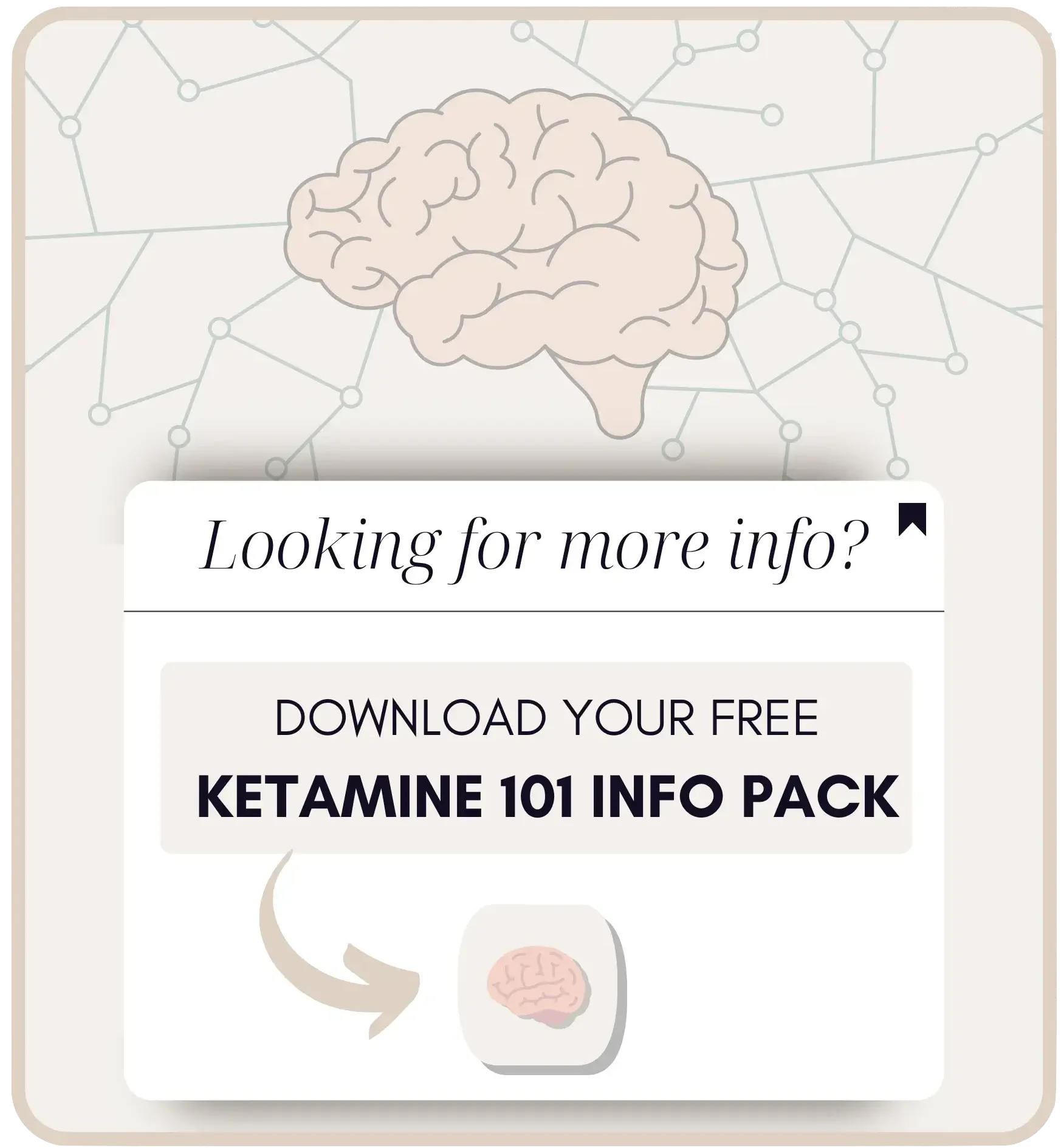How To Best Prepare for
Ketamine Assisted Therapy NJ
If you’re considering ketamine-assisted therapy, preparing thoughtfully can make a meaningful difference in your experience. Whether this is your first time exploring psychedelic therapy or you’re already scheduled for a session, this guide will help you understand what to expect—and how to get the most from your treatment.
At Mind by Design, we are licensed therapists offering online ketamine-assisted therapy in New Jersey, blending evidence-based care with compassionate, professional support. Here’s everything you need to know to prepare with confidence.

Why Preparation for Ketamine Assisted Therapy NJ Matters
Ketamine-assisted therapy is a powerful tool for healing and transformation. Like any therapeutic process, its impact deepens when approached with intention and care.
Proper preparation can:
- Reduce anxiety and increase emotional readiness
- Help you feel more grounded and open during the session
- Support integration and long-term benefits
We work with each client to create a personalized preparation and integration plan, ensuring you feel safe, supported, and seen throughout your journey.

What to Expect Before Your First Ketamine Assisted Therapy Session
As a fully virtual practice, we offer online ketamine-assisted therapy to clients across New Jersey. Here’s what happens before your first session:
- Initial Intake & Evaluation
- We begin with a thorough mental health assessment and medical screening to ensure ketamine therapy is safe and appropriate for you.
- Therapeutic Planning
- You’ll meet with a licensed therapist to explore your goals and develop a preparation strategy.
- Session Scheduling
- Sessions are conducted via secure video, in partnership with a medical provider who prescribes ketamine if clinically appropriate.
We’ll walk with you through every step—from your first question to your final integration session.
How to Prepare for Ketamine Assisted Therapy
Mentally Prepare for Ketamine Assisted Therapy
Your mindset plays a key role in shaping your ketamine experience. You don’t need to have all the answers—but having a curious and open heart can help.
Ways to mentally prepare:
- Set an intention: Think about what you’d like to explore or understand more deeply.
- Journaling: Write down your thoughts, fears, and hopes leading up to your session.
- Practice mindfulness: Gentle breathing or meditation helps you stay present.
You’re not alone in this—your therapist will guide you through any emotional preparation needed, and help you ground your expectations.
Physically Prepare For Ketamine Assisted Therapy
While ketamine is generally safe, there are a few things to keep in mind to support your physical well-being before treatment.
Tips for physical prep:
Avoid food and drink for at least 4–6 hours before your session, unless directed otherwise by your provider.
Get restful sleep the night before, as fatigue may affect your emotional processing.
Medications: Always review your current medications with our consulting medical team before starting therapy. Some may interact with ketamine.
Our Medical consultants will provide clear instructions based on your individual health profile.

Setting Up Your Space (for Online Sessions)
Since sessions are conducted online, your physical environment plays an important role. Here’s how to set the tone for a supportive, distraction-free experience:
Choose a quiet, private space where you feel safe and undisturbed.
Use headphones and soft lighting to stay immersed and comfortable.
Have comforting items nearby: a blanket, eye mask, water, or a journal.
Turn off notifications and let others know you’ll be unavailable.
We’ll also help you prepare your space during your pre-session call, so you never have to guess.
Preparing For Ketamine Assisted Therapy NJ
Taking this step is courageous—and you don’t have to do it alone. At Mind by Design, we offer compassionate, professional care to help you prepare for and integrate ketamine-assisted therapy in a way that feels meaningful and safe.
Just as with all mental health treatment, clients experience the benefits of Ketamine Assisted Therapy for Mental Health in different ways, and some clients may not be eligible, or need, ketamine assisted therapy. If you are a candidate for this treatment, knowing how to prepare can be immensely helpful and may lead to more positive outcomes.
Meet Our Providers
FAQ About Ketamine Assisted Therapy NJ
Could anyone benefit from Ketamine Assisted Therapy NJ?
KAP has shown promise for individuals with treatment-resistant depression and certain anxiety disorders. However, its efficacy can vary from person to person.
What does Ketamine Assisted Therapy NJ help treat?
Ketamine has shown promise in treating various mental health conditions, including PTSD, Anxiety, Depression, Phobias and OCD. As Ketamine therapy providers, we offer this service to help clients break cycles of thinking traps that lead to compulsive behaviors.
Is Ketamine Assisted Psychotherapy the same as ketamine infusions?
KAP is a therapeutic approach that combines the use of ketamine with psychotherapy. Our Process of providing ketamine assisted psychotherapy is different from ketamine infusions, which are typically administered without the accompanying psychotherapy. Our partnership with Journey Clinical provides patients with lozenges for self-administering their Ketamine dose prescribed by the Journey Clinical provider.
How does ketamine work in the brain?
Ketamine works by blocking NMDA receptors in the brain, which can lead to an increase in the release of certain neurotransmitters. This can result in rapid antidepressant effects
Is ketamine addictive?
While ketamine has the potential for misuse, when used in a controlled medical setting for therapeutic purposes, the risk of addiction is considered low according to medical researchers
How many ketamine treatment sessions do clients need for KAP?
The number of sessions can vary based on individual needs and the specific protocol followed by the provider. You will see in “Our Process” that generally 2-3 sessions are held prior to a dosing session, and then integration sessions are held after a dosing session. Depending on your treatment plan, there may be more or less number of sessions
Do I need to take off work for KAP treatment? And if so, how long should I plan for?
It’s recommended to take some time off work after a KAP session to process the experience and ensure safety, especially if any side effects are experienced. Clients are provided with safety measures and consents which stipulate that clients should not drive after a dosing session and should have a trusted person with them to drive if needed.
What medical conditions might disqualify someone from KAP?
Certain medical conditions, such as uncontrolled hypertension or a history of psychosis, might be contraindications for KAP. See Our “Safety Measures” page for more information about the precautions that the medical team adheres to, along with other safety measure sin place.
Do I need a referral from my doctor?
At Mind by Design, we do not require pre-approval to begin the process. We do require a medical clearance through our partnership with Journey Clinical Medical Staff to participate in a ketamine dosing session.
How often would KAP be needed?
The frequency of KAP sessions would depend on the individual’s response to treatment and the medical provider’s recommendations.
How does ketamine compare to other psychedelic medicines?
Ketamine is unique in its rapid antidepressant effects and mechanism of action. Other psychedelics, like psilocybin, have different mechanisms and therapeutic potentials.






